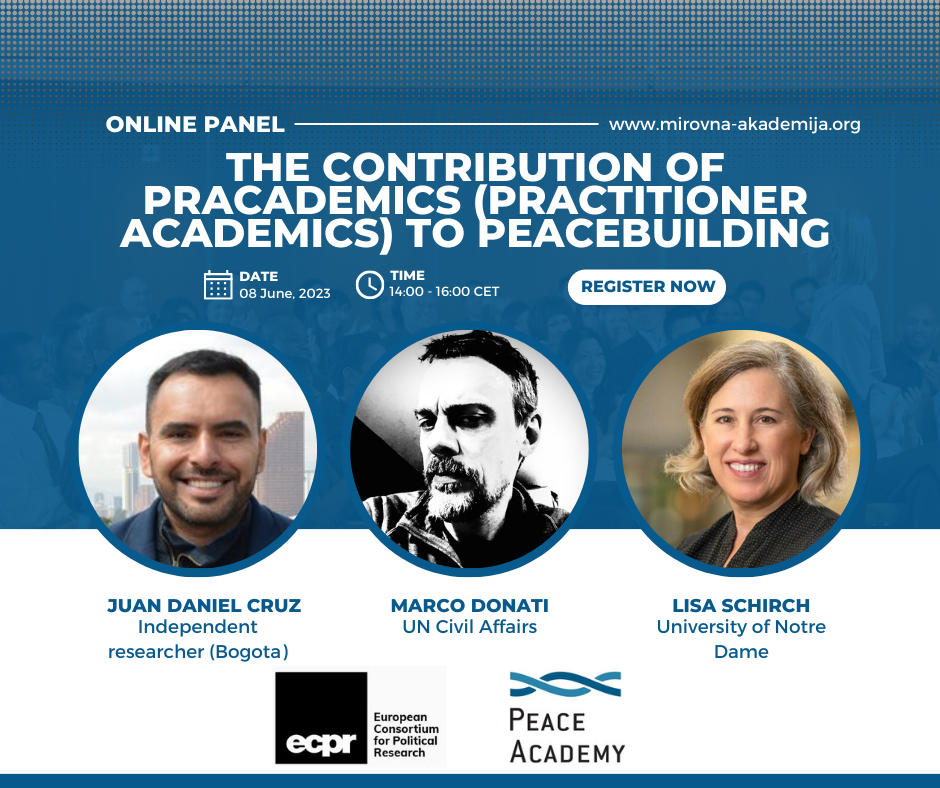Peace Professionalism
 The Peace Academy is happy to announce our partnership as part of a three-year project (2023-2026) entitled “Developing and Testing New Approaches to Peace Professionalism”. The project will
The Peace Academy is happy to announce our partnership as part of a three-year project (2023-2026) entitled “Developing and Testing New Approaches to Peace Professionalism”. The project will
- Establish a network or a community of practice to improve our understanding of peace work and related skills, competencies, and values;
- Develop and test a system of assessment that can be scaled at the local, national, and international levels to increase the effectiveness and efficiency of peace professionals; and
- Create a platform to increase knowledge co-production, translation, and sharing about peace professionalism.
Overall, the project seeks to improve the planning, implementation, and evaluation of peace programs, and to complement curricula in peace and conflict studies.


